Interacting with students has been one of the most fulfilling aspects of my academic life. I have had the
opportunity to mentor lesbian, gay, bisexual, transgender, and queer (LGBTQ) students. In doing so, I
have explored ways to bridge academics with community engagement work. Integrating my research
and teaching experiences, I have worked closely with them on event programming, social justice work,
and helped them to navigate structural barriers in and beyond college.
As a queer and transgender-identified person, my personal background has been an asset in mentoring
underrepresented students. These identities, that make up part of the fabric of my academic self and
compel my personal investment in community engagement work, have also enriched my teaching,
research, and interpersonal interactions with colleagues and students. Drawing from McLaren’s call to
intervene and acknowledge many ways of knowing, compliments my aspirations as an educator and
scholar. “Criticality is not a line stretching into eternity, but rather it is a circle. Knowing can be the
object of our knowing, it can be self-reflective, and it is something in which we can make an
intervention. In which we must make an intervention” (2008:126).
Event Organizing
Bringing together my academic training and social justice background, I bring social theories of
inequality “to life” through organizing events like community art projects which allows for creative ways
to address structural problems within institutions and build community partnerships.
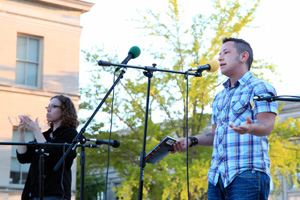
Take Back the Night Rally
- photo courtesy of Laurie Haag.
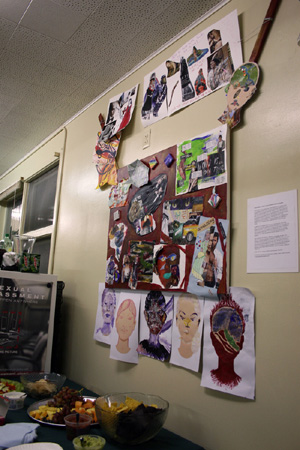
Community-based art project addressing gender identities
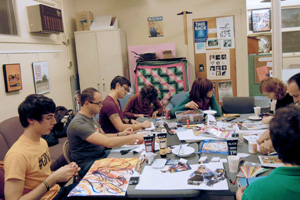
Community-based art project in action
Campus and Community Engagement
Based on my experience as an Obermann Center for Advanced Studies fellow, I integrate my social
justice event organizing work and public speaking to curate art exhibitions, oral history projects, and
slam poetry events. I work with students, staff, faculty, and community members to build holistic
intentionally-designed community engagement projects to address the multi-faceted nature of oppression.
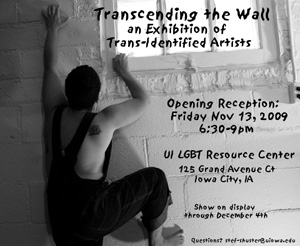
Transcending the Wall exhibit of trans-identified artists
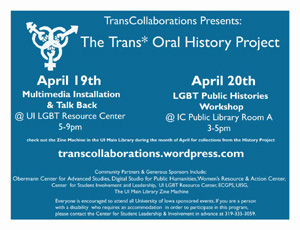
Chicago-Based Trans* Oral History Project
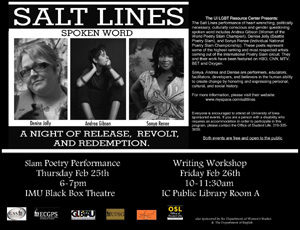
Salt Lines spoken word performance and writing workshop
Zines
In 2007 when I moved to Iowa City there were few resources for trans-identified people. From
healthcare to housing, units across campus and in the community had no knowledge of how to support
(or even talk about) trans people. In response to this situation, I founded TransCollaborations, a
community and campus-based organization. From the beginning, we were committed to building strong
ties with campus and community partners, as well as addressing oppression from an intersectional
perspective. One of the ways that we brought together different communities and social issues was
creating zines (zines are self-published small magazines) to distribute across Iowa City.
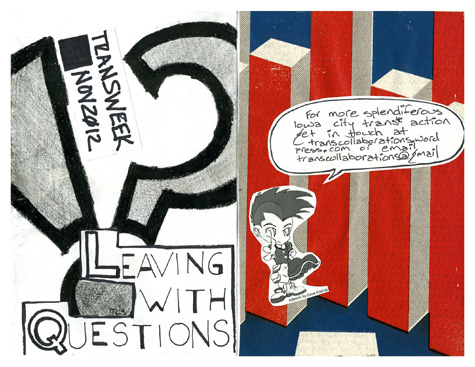
2011 TransWeek zine
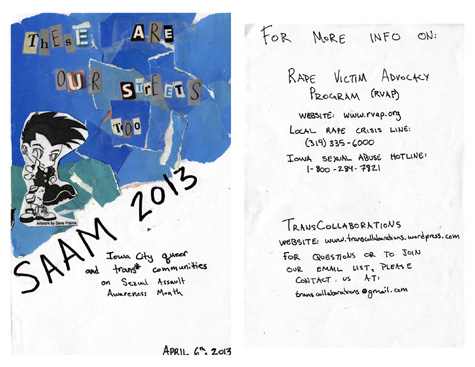
2013 Sexual Assault Awareness Month (SAAM) zine
I look forward to building on community engagement projects in my current position.
In the classroom, I have also used zine-making as a way to engage students’ many ways of “knowing” to produce a
non-academic text that addresses topics from class conversations.
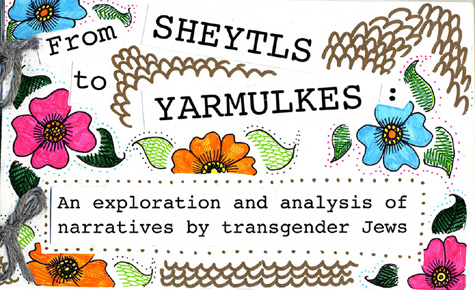
Sammi Siegel’s From Sheytly to Yarmulkes: An Exploration and Analysis of Narratives by Transgender Jews
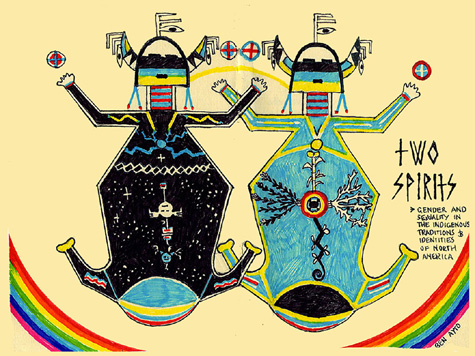
Ben Ayto’s Two Spirits: Gender and Sexuality in the Indigenous Traditions of Identities of North America